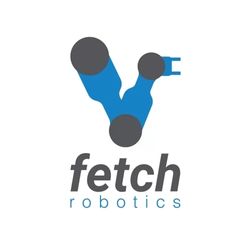Giant.AI

Giant.AI develops advanced robotic technology for the manufacturing industry. Their primary product is a robot designed to assist with tasks on production lines and in factories. The company specializes in creating intelligent automation solutions that streamline manufacturing processes, increase efficiency, and enhance productivity. Giant.AI’s robots are equipped with artificial intelligence capabilities, enabling them to adapt to various production environments and perform complex tasks with precision.
Ghost Robotics

Ghost Robotics designs and manufactures quadrupedal unmanned ground vehicles (Q-UGVs), commonly known as “robot dogs.” These autonomous four-legged robots are built to navigate challenging terrains and harsh environments. The company’s flagship product, the Vision 60, is used for various applications including surveillance, reconnaissance, and security operations. Ghost Robotics’ Q-UGVs are utilized by military, government, and enterprise clients for tasks such as border patrol, asset protection, and data collection in areas difficult for humans to access.
Gecko Robotics

Gecko Robotics builds wall-climbing robots and software for inspecting and maintaining critical infrastructure. Their robots perform non-destructive testing on tanks, boilers, scrubbers, and pipes, detecting issues like wall thickness, cracking, and corrosion. The company’s technology collects data 1000 times faster than traditional methods, improving safety and efficiency in industries such as power, oil & gas, and defense.
Fetch Robotics

Fetch Robotics develops and manufactures autonomous mobile robots (AMRs) for warehouse automation and logistics. Their cloud-based platform integrates with a range of AMRs to streamline material handling, inventory management, and fulfillment processes. Fetch’s robots can transport items from parts to pallets, perform cycle counting, and work alongside humans to improve efficiency in distribution centers and manufacturing facilities.
Diligent Robotics

Diligent Robotics develops autonomous robots for healthcare environments. Their flagship product, Moxi, assists hospital staff with routine tasks like delivering supplies, medications, and lab samples. This allows healthcare professionals to focus more on direct patient care. Moxi navigates hospital hallways independently, operates elevators, and interacts socially with staff and patients. The robot’s ability to handle logistical tasks helps reduce nurse burnout and improves operational efficiency in hospitals.
Coco

Coco Robotics operates a fleet of remotely piloted sidewalk robots for last-mile food delivery. These compact electric vehicles transport meals from local restaurants to customers, offering a faster, more reliable, and environmentally friendly alternative to traditional delivery services. Coco’s robots are equipped with real-time tracking, ensuring customers can monitor their orders from dispatch to arrival.
Chef Robotics

Chef Robotics develops AI-powered flexible food robots for industrial food production. Their technology helps food manufacturers overcome labor shortages and increase production volume. The company’s robots, powered by proprietary ChefOS software, can perform various tasks like ingredient measurement and packaging. Chef Robotics has already deployed its systems in multiple North American cities, completing over 20 million servings in production. Their robots have helped customers reduce food waste, increase productivity, and improve throughput.
Boston Dynamics

Boston Dynamics creates advanced robots with exceptional mobility and dexterity. Their products include the agile Spot robot dog, the humanoid Atlas, and the logistics-focused Handle. These robots are designed for various applications in industrial automation, research, and complex real-world environments. The company specializes in developing robots that can operate outside traditional factory settings, enhancing productivity and safety across multiple industries.
Automata

Automata develops lab automation solutions for the biotechnology and life sciences sectors. Their LINQ platform integrates hardware and software to automate laboratory workflows, enhancing efficiency and reliability. The system includes a modular lab bench and cloud-based scheduling software, enabling scientists to design and manage automated workflows remotely. Automata’s technology helps labs increase throughput, reduce manual interactions, and optimize space utilization.
Apptronik

Apptronik develops humanoid robots for industrial environments, creating Apollo – a 5’8″ robot designed to perform complex tasks in warehouses, manufacturing plants, and logistics centers. The robot can lift 55 lbs, operates for 4 hours per battery pack, and uses advanced AI to learn and adapt to various work scenarios.
